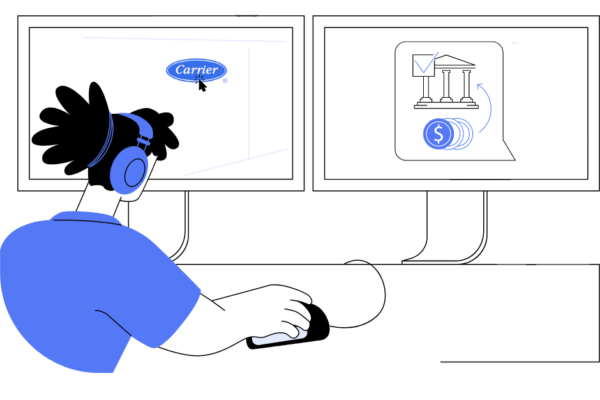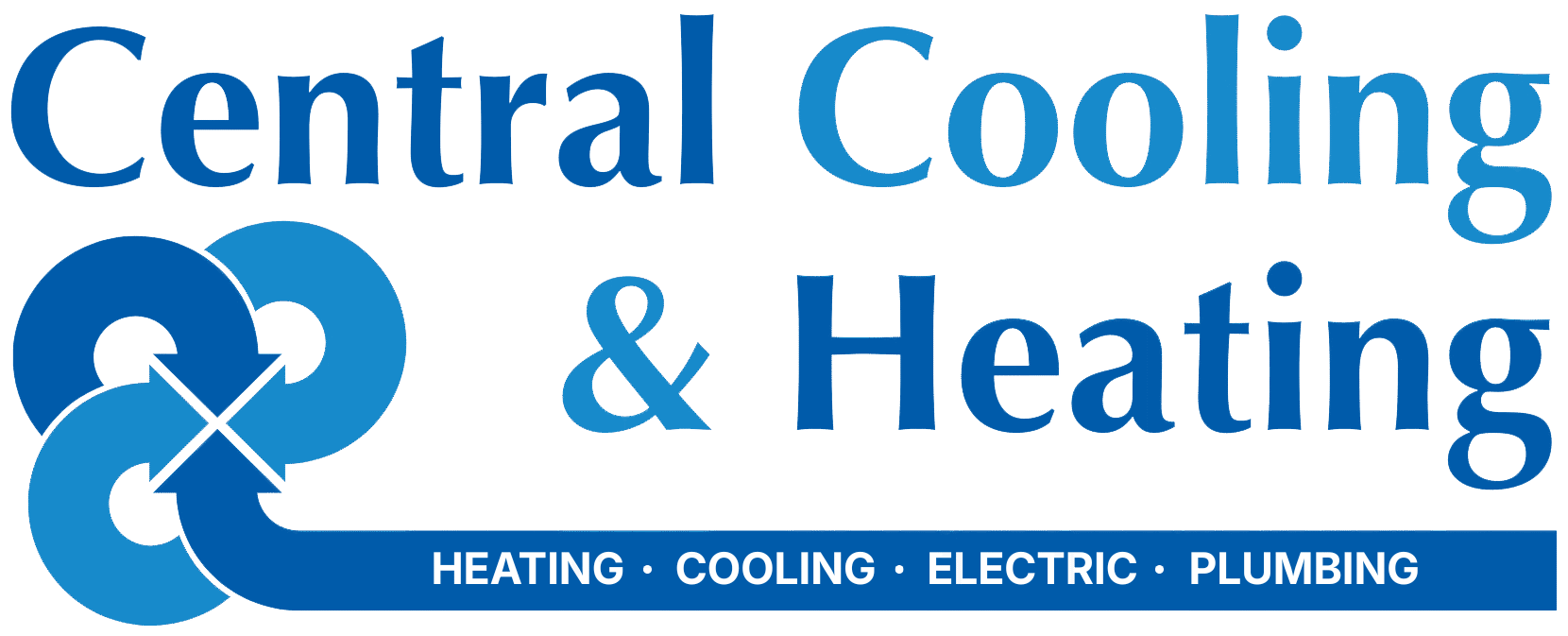They Don't Just “Heat” — and They Don't REALLY “Pump” EITHER!
They Don’t Just “Heat” — and They Don’t REALLY “Pump” EITHER!
Yes, you read that tongue-twister of a title correctly! Heat pumps can do much more than the word “heat” in the name would lead you to believe. Theydo in fact cool as well. Perhaps “Heat Gatherer and Transfer-er” would be a more accurate name, but that doesn’t have much of a ring to it, does it?
Whatever you call it, U.S. Dept. of Energy statistics show homeowners save an average of $1000 a year with a heat pump. And they’re much better for the environment — so much so that rebates of up to $16,000 are offered to homes that switch to heat pumps. Our team at Central Cooling & Heating is eager to provide advice for homeowners who want to take advantage of the many benefits of the super-environmentally-friendly — albeit imprecisely named — heat pump.
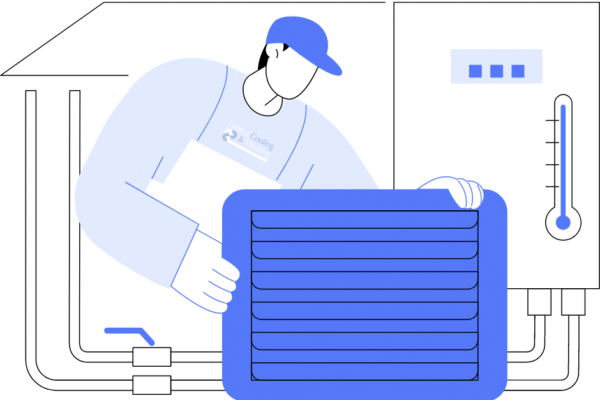
If Heat Pumps Aren’t Pumping Heat, What Are They Doing?
Heat pumps are unlike any other HVAC device on the market. For generations, the furnaces and boilers in everyone’s homes may have had slight operational differences, but they all relied on on the same concept: energy in equals energy out. That is, fossil fuels, or electricity, in equaled hot or cool air out.
Heat pumps, however, are different. Heat pumps don’t convert hot or cool air via the depletion of energy but, instead, use energy to gather heat. An electric-powered heat pump can gather three to four times more heat than a traditional system can convert using the same amount of fossil fuel. And with more of our electricity being generated by renewable methods (currently 24% and growing), that’s some incredible eco-friendly efficient power!
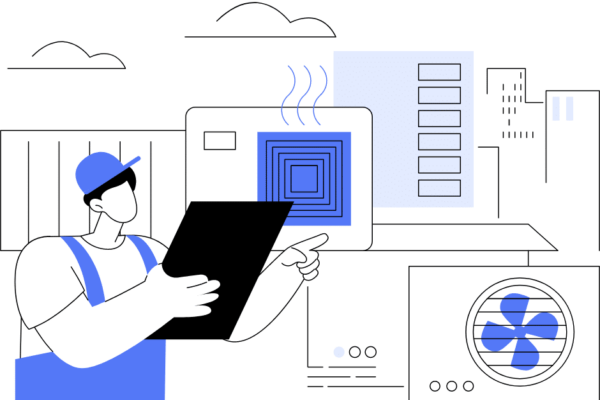
There are two main categories of heat pumps: “Whole Home” and “Partial Home” (also known as “Ductless” or “Mini-Split”). Both operate on the same principles, but a whole home heat pump uses ducts running throughout a home to delver warm or cool air. (Yes, you can use the same ducts that your existing home pay have to deliver air from a furnace or boiler.) A partial home heat pump heats or cools a single room of living space, without using ducts. Multiples of these ductless units can be combined to cover some, are all, of a home.
Heat Pump Myth Busting
Over the years, many HVAC contractors have discredited heat pumps, saying they don’t operate well in colder climates such as here in New England. However, if this opinion was ever based on some truth in the past, advances in technology have now eliminated it:
- Air source heat pumps — the most common type — use refrigerant, which is able to absorb heat even in the coldest temperatures.
- Geothermal heat pumps rely the consistent temperature beneath the Earth’s surface. It doesn’t matter how cold it is outside.
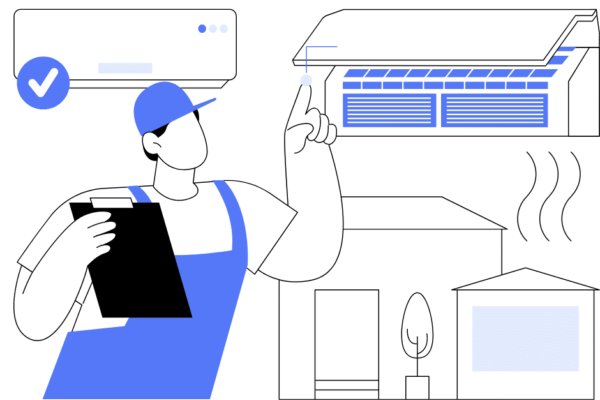

Yes, there are a few “buts.” First, if it’s extremely cold, say, well below zero (Fahrenheit), your heat pump will have to work a little harder to absorb heat, reducing its efficiency. Second, your system must be sized properly to your home or business to adequately heat or cool the living space. While this requirement applies to all heating and cooling systems, it’s especially important for heat pumps. Which is why you should choose a reputable contractor to size and install a heat pump system.
An Eco-Friendly Payout
Often, environmentally friendly products have a significant price tag. The return on the investment may take some time. However, with heat pumps you might not have to burden the price alone to receive the reward. There are ways you can save through both Federal and state government incentives as well as through rebate promotions provided by HVAC manufacturers. Many of our customers find that using one or multiple of these offers makes the stressful prospect of a major investment seem…well…,not that major!
Savings For Everyone
Federal Rebates And Tax Credits
- The Inflation Reduction Act’s Energy Efficient Home Improvement Tax Credit can save you $2,000 on qualified heat pumps! You’ll have to commit to choosing a heat pump with a thermal efficiency rating of at least 75% to qualify.
- Tax Section 25D is another tax credit to homeowners equal to 30% of installation costs for ENERGY STAR® geothermal heat pumps until 2032.
- Lastly, the High-Efficiency Electric Home Rebate Program provides income-dependent rebates for up to $8,000 for all-electric heat pumps.
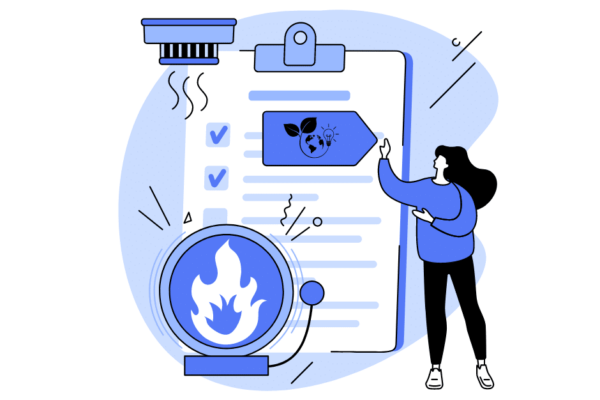
State (Massachusetts) Rebates
There’s a big push here in Massachusetts to reduce our carbon footprint. In an effort to attain a greener future, rebates and loans are available to homeowners of all income levels through two agencies: Mass Save and the Massachusetts Department of Energy Resources:
- You could get your much of the cost of a heat pump system covered by MassSave rebates! Most homeowners can save up to $10,000, and some may qualify for up to $16,000. Learn more here. Schedule a consultation with a Central Cooling heat pump expert →
- If you need a little extra help with the cost of installing your heat pump, Massachusetts DOER loans are a lifesaver. Also known as the Mass Save “HEAT Loan” , these loans offer 0% financing opportunities of up to $50,000.

HVAC Dealer Rebates
- Right now (winter 2024), you can save up to $1,600 on Carrier heat pumps! (Available for orders up until February 29, 2024, with installation by March 31) Estimate your savings →
- Soon, Carrier will restart their seasonal Cool Cash program with savings of $3,000 or more.
Where To Go From Here?
Here at Central Cooling & Heating, we have a staff of heat pump experts — both within our friendly office team as well as among our experienced HVAC technicians. These people are factory-trained, knowledgable about the latest heat pump technology, and well-versed in the current rebates and incentives offered the manufacturers as well as state and Federal government agencies. They’ll inspect your home’s existing heating/cooling system and conduct what are known as “load calculations” to allow them to make a recommendation for the heat pump that’s just right for you. Ask them for a no-obligation consultation today.
